i have 3 tables, 1 is user table which store all user data, another one is application table, the last is user education table, the relationship between these tables :
an user can have many applications, and also can have many education background
the problem here is i want to select data for monthly report from application table and i want to group by my data by each education level, based on each user highest education, like this :
user A - high school
user A - bachelor degree
user A - master degree
user B - high school
user C - bachelor degree
user D - high school
will result :
master degree : total 1
bachelor degree : total 1
high school : total 2
i have tried this :
var edu = CTX.user_applications.Where(a => a.applied_date >= new DateTime(DateTime.Now.Year, DateTime.Now.Month, 1)
&& a.applied_date <= DateTime.Now
).GroupBy(g => (g.user_list.user_edus.OrderByDescending(o => o.edu_lvl_id).FirstOrDefault()))
.Select(x => new ReportObject
{
Key = x.Key.ToString(),
Count = x.Count().ToString()
}).ToList();
error :
A group by expression can only contain non-constant scalars that are comparable by the server. The expression with type 'System.Data.Linq.EntitySet`1[OTOKarir.Models.user_edu]' is not comparable
it does not work, it give me an error, there's must some trick to do it correctly, btw i am not really sure that it will give me the desired result, i am stug with this, need some guidance, any idea will be very great? thx.
